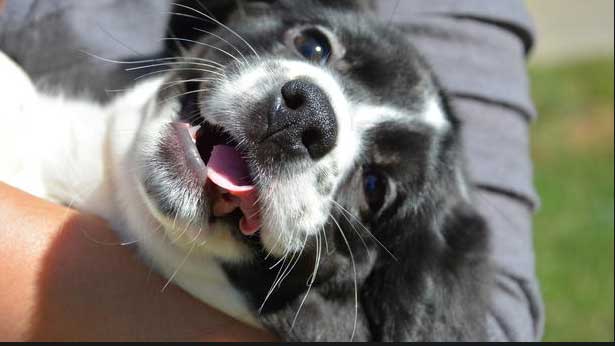-
Tips for becoming a good boxer - November 6, 2020
-
7 expert tips for making your hens night a memorable one - November 6, 2020
-
5 reasons to host your Christmas party on a cruise boat - November 6, 2020
-
What to do when you’re charged with a crime - November 6, 2020
-
Should you get one or multiple dogs? Here’s all you need to know - November 3, 2020
-
A Guide: How to Build Your Very Own Magic Mirror - February 14, 2019
-
Our Top Inspirational Baseball Stars - November 24, 2018
-
Five Tech Tools That Will Help You Turn Your Blog into a Business - November 24, 2018
-
How to Indulge on Vacation without Expanding Your Waist - November 9, 2018
-
5 Strategies for Businesses to Appeal to Today’s Increasingly Mobile-Crazed Customers - November 9, 2018
First litter of in vitro puppies born in US
The puppies born July 10 are a mix of beagle, Labrador and cocker spaniel and are now healthy 5-month-olds. Two of them were from a beagle mother and a cocker spaniel father; five were from two sets of beagle mothers and fathers, according to a release. “PLOS” stands for “Public Library of Science”.
Advertisement
“Dog reproduction is very, very different from that of other mammals”, said Alexander Travis, an associate professor of reproductive biology, who helped lead the work of making the first test-tube puppies.
Travis told BBC that the new technique can be used to “conserve the genetics of endangered species”, such as the African wild dog. “If we want to breed them in captivity and we collect, say, their eggs and sperm, we have to be able to do IVF to create new members of that species”. While this process is used successfully on human embryos in which an egg and sperm are united outside the body before the egg is implanted inside the female, it’s a first for dogs.
To help things along, the researchers bolstered the ability of canine sperm to fertilise an egg by adding magnesium to the sperm’s storage medium. When the female dogs’ eggs were extracted at the same stage of their menstrual cycle as is done for humans, the eggs weren’t yet ready to be fertilized.
“We each took a puppy and rubbed it with a little towel and when it started to squiggle and cry, we knew we had success”, said Dr. Travis.
“There are many, many diseases – over 350 diseases – that dogs have that are genetic in origin that are shared with people”, Travis said.
To conquer these issues, Travis and his research team determined the eggs would continue to develop if left in the dog’s oviducts – like human fallopian tubes – for a day longer than the norm.
The puppies were born in the summer in the US. For instance, golden retrievers are at risk of developing lymphoma while Dalmatians carry a gene that makes them vulnerable to kidney and bladder stones.
IVF will in the future allow scientists to ensure endangered dog species and rare breed survive. The scientists were more than happy to report that all of the mutts are healthy and happy-just like every other naturally-conceived dog. The researchers at Cornell University’s Baker Institute for Animal Health had been investigating the potential of IVF in preserving endangered species in the canine family and in studying genetic diseases.
Advertisement
It also could help eradicate heritable diseases in dogs, according to the researchers.





























